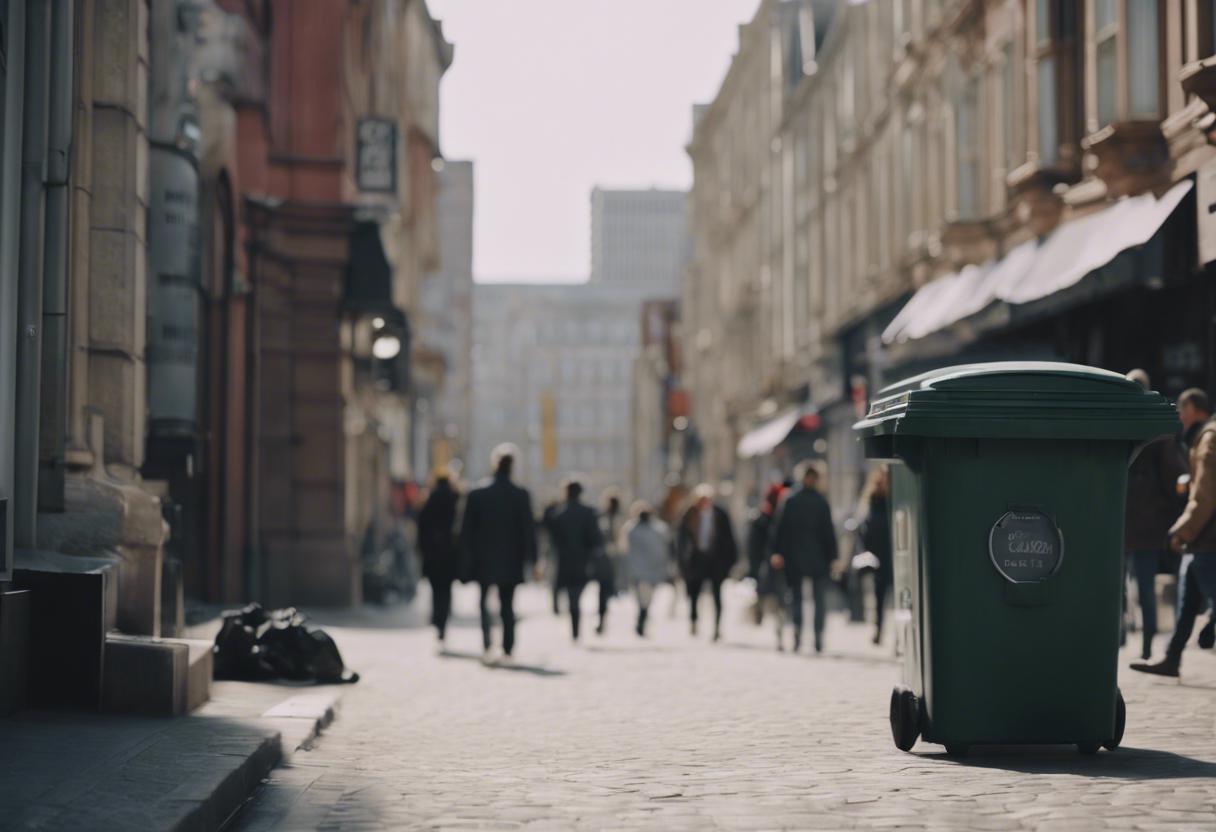Dublin city centre is currently testing a new concept for public waste bins, aiming to dissuade individuals from rummaging through rubbish in order to collect bottles and cans as part of the Deposit Return Scheme. The initiative involves the installation of “give, take, return” features on 80 city bins. These attachments allow people to place empty drink containers on the bin’s exterior, making it easier for those who want to claim cash through the deposit return machines to do so.
The return scheme was established in February of last year, with a 15-cent deposit charge on beverage containers up to 500ml and a 25-cent deposit for anything larger. Deposits can be obtained at machines predominantly found in supermarkets.
In spite of the scheme’s intentions, a fresh littering issue has arisen, with individuals rummaging through bins for cans and bottles, and often leaving other rubbish behind. The inventive “bin surrounds” can carry up to 12 cans or bottles on the outside of the bin, ready for collection by someone seeking the deposit. Ciaran Foley, Chief Executive of Re-turn, which runs the deposit return scheme, indicates that it also promotes recycling by reducing loss to general waste.
Foley emphasised the importance of capturing drink containers on the go and separating them from general waste to the success of the Deposit Return in Ireland. He urges consumers to see the worth in these resources before just discarding them. He is eager about the collaboration with Dublin City Council for these trials and anticipates a positive roll-out throughout the country.
James Geoghegan, the Lord Mayor of Dublin, highlighted that in addition to keeping the city cleaner, the new attachments would decrease health and safety hazards associated with digging through bins.
This groundbreaking initiative represents a significant advancement towards a cleaner, safer urban environment. We understand that individuals have been rummaging through municipal waste bins to gather bottles and cans for return, resulting in an increase in litter on our streets and potentially endangering those involved.
As part of a three-month trial, protective structures will be added to 80 of the city centre’s 600 public rubbish bins, and the initiative will be broadened if it proves to be successful.
Councillor Geoghegan recognises the initiative won’t eliminate instances where people tear apart bin bags left out for private collection in search of bottles and cans. However, the council’s gradual implementation of new regulations that forbid the use of plastic garbage bags should help alleviate this issue. These new regulations will be enacted on 90 roads on the city’s south side as of January 1st.

